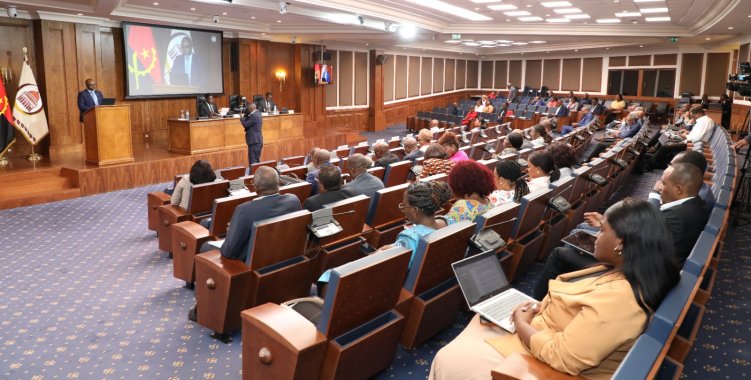According to a statement from parliament, to which VerAngola had access, the proposal "defines the principles of carrying out gaming activities and regulates the exploitation of games of fortune or chance, practiced in casinos and gaming rooms, as well as social games and in virtual form".
The Secretary of State for Finance and Treasury, Ottoniel Santos, attended this Monday's session as a proponent, having clarified the diploma.
Thus, on the occasion, the secretary clarified that the diploma aims to "give greater scope to the spectrum of gaming supervision, not only focusing on the management of games of bad luck or luck, managed by casinos, but also giving scope to social games and online games", reads the statement.
According to Ottoniel Santos, this leads to the optimization of law 5/16, of May 17th, and in this case, some of the proposals "migrate here from the previous law".
Therefore, the note adds, the "legal instrument also regulates the process of supervision and inspection of the activity, the tax regime, responsible gaming, money laundering, gaming advertising and the sanctioning regime".
Furthermore, the proposal also aims to "make the gaming sector's tax burden fairer and more sustainable", as well as "more competitive for investments" in this field, since, "when explored in good business environments, it contributes to attracting of tourists" and, at the same time, ensures "robust foreign exchange revenues".
According to the statement, the operation of games of chance in casinos, social games and remote online games is "subject to a special taxation regime".
While for online games, the diploma presents a tax rate of around 20 percent.
"In relation to the overall value of the prizes, from entities whose exclusive purpose is to explore gaming activities, the rate of 10 percent is applicable to territorially based games of fortune or chance, 15 percent to base social games territorial and 15 percent in online games", says the statement.
The reduction in tax rates aims to attract economic agents outside the system, with the aim "of expanding the tax base and, with this, global tax revenue, thus avoiding clandestine games".







